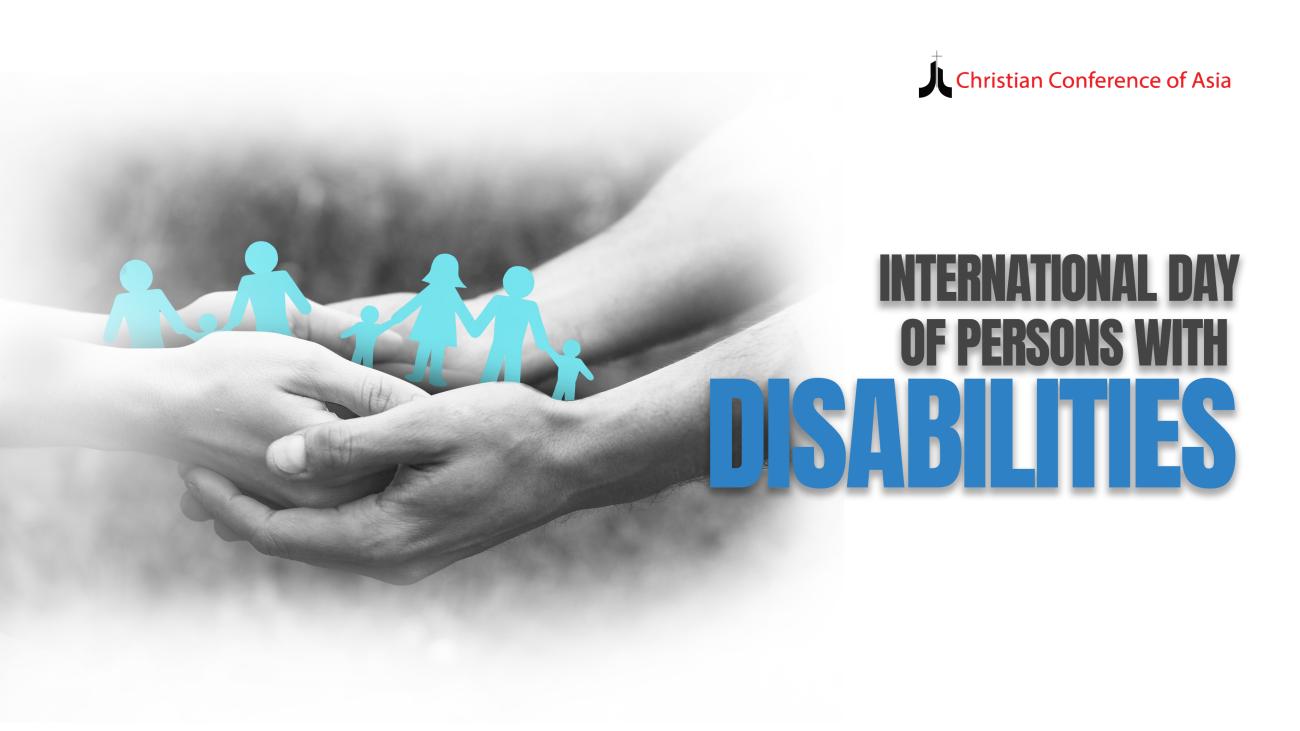CCA urges churches on International Day of Persons with Disabilities to amplify call for greater disability inclusion

Chiang Mai, Thailand: The Christian Conference of Asia (CCA) observed the International Day of Persons with Disabilities, which falls on 3 December every year.
In a statement released today, CCA amplified the call for inclusion and leadership of persons with disabilities. Reflecting on this year’s theme, ‘Amplifying the Leadership of Persons with Disabilities for an Inclusive and Sustainable Future’, CCA underscored the vital contributions of persons with disabilities in shaping a more equitable and inclusive society.
Dr Mathews George Chunakara, CCA General Secretary, emphasised the urgent need to ensure the inclusion of persons with disabilities in all aspects of community life, stating, “Their leadership is critical to achieving the Sustainable Development Goals and addressing the barriers that hinder progress toward a just and sustainable future”.
With approximately 700 million people living with disabilities in the Asia-Pacific region, the CCA General Secretary highlighted the pressing challenges they face, including limited access to education, healthcare, and employment opportunities. He also drew attention to the heightened vulnerabilities of women and children with disabilities, who often encounter compounded discrimination and marginalisation.
The statement urged CCA member churches to reflect on their inclusivity, encouraging them to examine whether persons with disabilities are fully welcomed into worship, ministry, and community activities.
“Our faith calls us to emulate Christ’s compassion and advocacy for equality. It is our collective responsibility to ensure that people with disabilities find dignity, belonging, and love within our churches and society”, Dr Chunakara said.
The CCA General Secretary called for a concerted effort to dismantle systemic barriers and cultural prejudices that perpetuate the exclusion of persons with disabilities, noting that this included addressing harmful practices in healthcare, challenging societal stigma, and providing equitable access to education and employment.
He further urged churches and society to take active steps toward holistic healing—of spirit, mind, body, and soul—ensuring that no one was left behind and that all individuals could experience dignity, belonging, and love.











